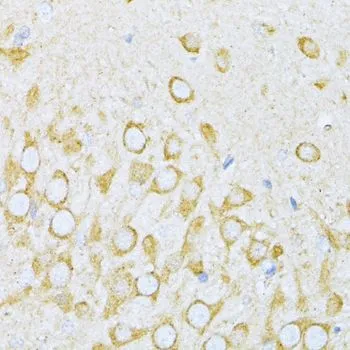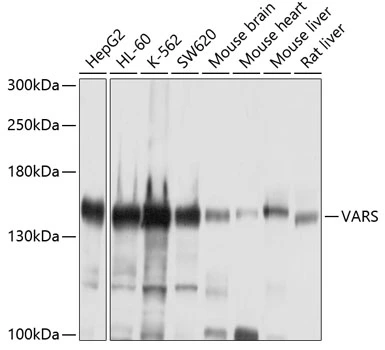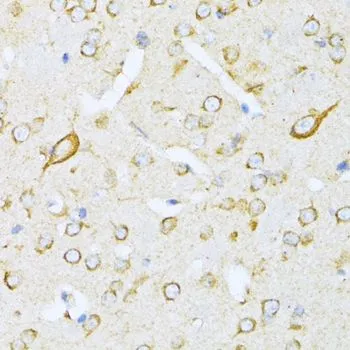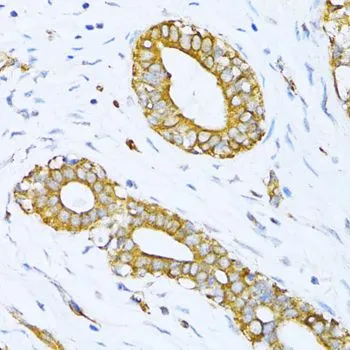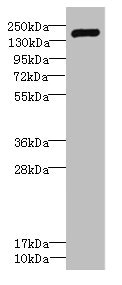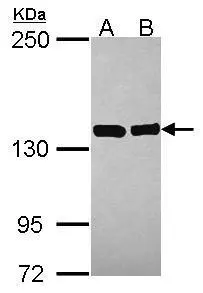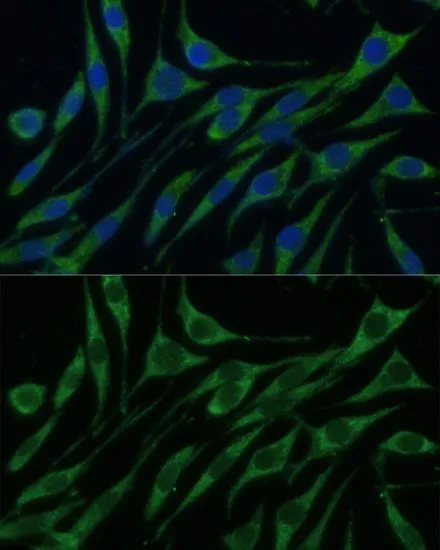
ICC/IF analysis of L929 cells using GTX66016 Valyl tRNA synthetase antibody. Blue : DAPI Dilution : 1:100
Valyl tRNA synthetase antibody
GTX66016
ApplicationsImmunoFluorescence, Western Blot, ImmunoCytoChemistry, ImmunoHistoChemistry, ImmunoHistoChemistry Paraffin
Product group Antibodies
ReactivityHuman, Mouse, Rat
TargetVARS1
Overview
- SupplierGeneTex
- Product NameValyl tRNA synthetase antibody
- Delivery Days Customer9
- Application Supplier NoteWB: 1:500 - 1:2000. ICC/IF: 1:50 - 1:100. IHC-P: 1:50 - 1:100. *Optimal dilutions/concentrations should be determined by the researcher.Not tested in other applications.
- ApplicationsImmunoFluorescence, Western Blot, ImmunoCytoChemistry, ImmunoHistoChemistry, ImmunoHistoChemistry Paraffin
- CertificationResearch Use Only
- ClonalityPolyclonal
- ConjugateUnconjugated
- Gene ID7407
- Target nameVARS1
- Target descriptionvalyl-tRNA synthetase 1
- Target synonymsG7A, NDMSCA, VARS, VARS2, valine--tRNA ligase, protein G7a, valRS, valine tRNA ligase 1, cytoplasmic, valyl-tRNA synthetase 2
- HostRabbit
- IsotypeIgG
- Protein IDP26640
- Protein NameValine--tRNA ligase
- Scientific DescriptionAminoacyl-tRNA synthetases catalyze the aminoacylation of tRNA by their cognate amino acid. Because of their central role in linking amino acids with nucleotide triplets contained in tRNAs, aminoacyl-tRNA synthetases are thought to be among the first proteins that appeared in evolution. The protein encoded by this gene belongs to class-I aminoacyl-tRNA synthetase family and is located in the class III region of the major histocompatibility complex. [provided by RefSeq, Jul 2008]
- ReactivityHuman, Mouse, Rat
- Storage Instruction-20°C or -80°C,2°C to 8°C
- UNSPSC41116161

